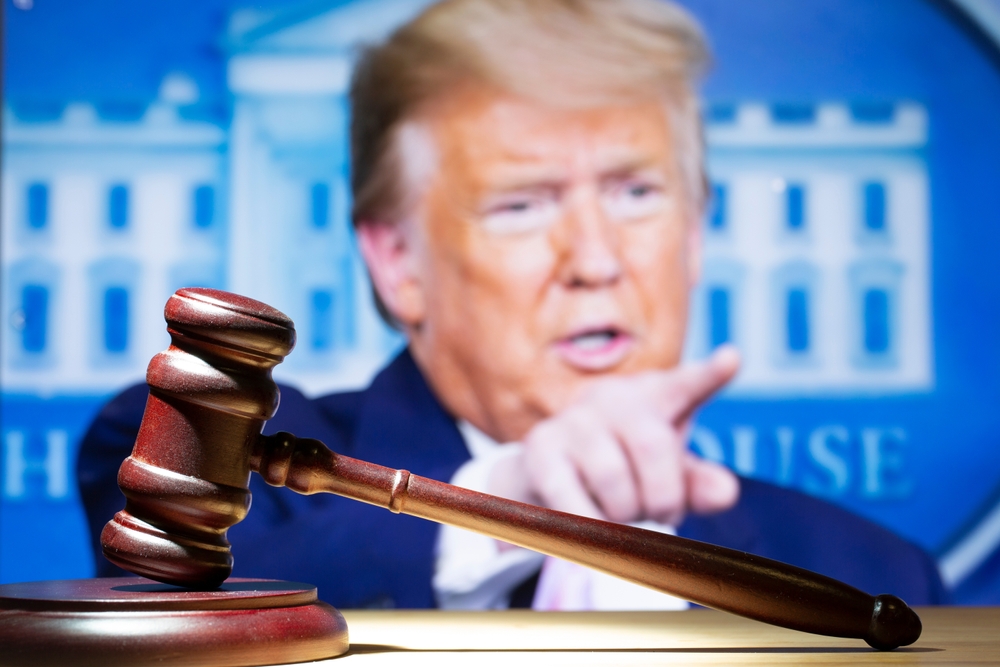President Donald Trump’s attempt to end birthright citizenship for children of undocumented immigrants through executive action faces legal hurdles and constitutional debates.
The Executive Order and Legal Debates
President Donald Trump issued an executive order intending to end birthright citizenship for children of undocumented immigrants, inciting extensive legal and constitutional debates. The move challenges the traditional understanding of the 14th Amendment, which guarantees citizenship to anyone born on U.S. soil, known as jus soli. The controversy has led to numerous legal challenges, sparking a complex discussion on constitutional limits and presidential powers.
Trump pushes to end birthright citizenship https://t.co/yx2kyCNgPX
— Voice of America (@VOANews) January 29, 2025
14th Amendment and Birthright Citizenship
The U.S. is among roughly 30 countries that grant automatic citizenship to individuals born on their soil. Critics of Trump’s order argue that the phrase “subject to the jurisdiction thereof” within the 14th Amendment implies that citizenship should only be granted if at least one parent is a U.S. citizen. This stance has led to ongoing legal battles and different interpretations over time.
“President Trump has made it clear that restoring fairness to our immigration system and defending the true intent of the 14th Amendment are central to his vision of making America great again.” – Republican Congressman Brian Babin.
Good.
The 14th Amendment is clear as day on this. Donald Trump doesn't get to rewrite the Constitution on a whim. https://t.co/HV77zavGRg
— Rep. Gerry Connolly (@GerryConnolly) January 23, 2025
Legal challenges against the executive order involve at least 22 Democratic-led states filing lawsuits opposing it. Critics claim the order would render affected children stateless, challenging their rights. A federal judge in Seattle, U.S. District Judge John C. Coughenour, has temporarily blocked the order, deeming it “blatantly unconstitutional.” Further hearings are planned, highlighting the ongoing judicial process surrounding this issue.
Historical and Constitutional Implications
The legal discussions around the 14th Amendment draw attention to its original intent and historical interpretations. The amendment, primarily designed to overturn the Dred Scott decision, has faced different legal readings over the decades, including the 1898 U.S. v. Wong Kim Ark case. Some experts argue this case supports birthright citizenship, although others contend its application excludes children of unlawful immigrants.
“We look forward to presenting a full merits argument to the Court and to the American people, who are desperate to see our Nation’s laws enforced” – Department of Justice.
The Department of Justice plans to defend the executive order, asserting the need to enforce national laws. The controversy could involve the Supreme Court, a decision that might reshape the understanding of citizenship in America. Although Congress could legislate the issue, political challenges persist, complicating a solution through legislative avenues.
Future of Birthright Citizenship
The Supreme Court’s ruling on the executive order could significantly influence the future of birthright citizenship in the U.S. Legal experts believe the Court would uphold the amendment’s existing interpretation. Still, the ongoing legal proceedings indicate a complex path ahead. The clash over constitutional intent versus modern interpretations continues to fuel the debate over the 14th Amendment’s reach and significance.
This debate reflects broader discussions on immigration policy, constitutional authority, and the balance of power in federal governance. The outcome will affect legal precedent and societal perceptions of American identity and citizenship rights.
Sources:
https://www.voanews.com/a/debate-rages-over-trump-s-push-to-end-birthright-citizenship/7955708.html

